5. Tampopo (1985, Jûzô Itami)
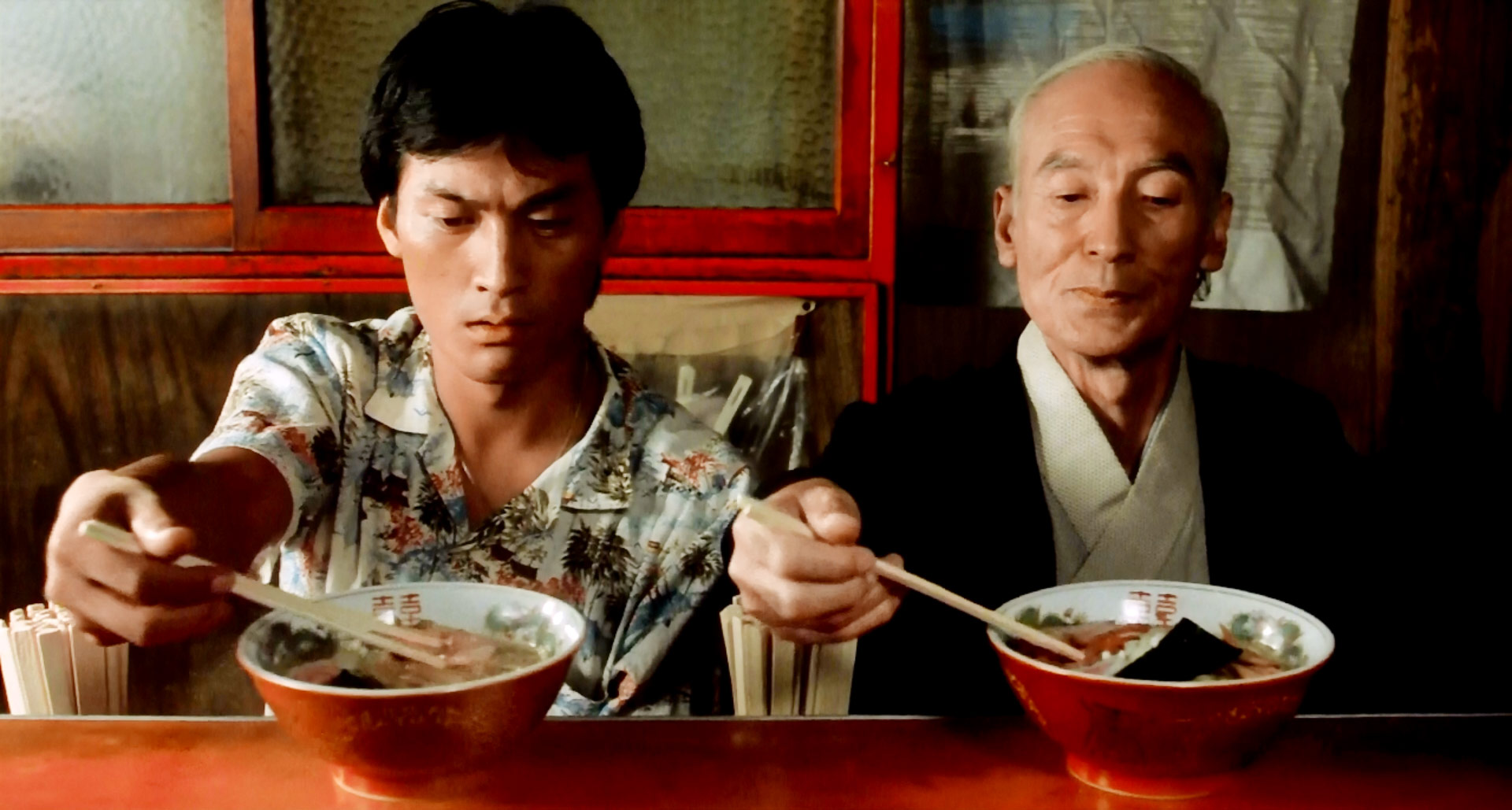
Wonderful Japanese dramatic comedy about the connection between food and love. A young women, Tampopo (played by Nobuko Miyamoto) tries to create the perfect noodles for her shop, and is helped by a modern-day Clint Eastwood-esque western hero (Tsutomu Yamazaki). Director Jûzô Itami is known for his unique mix of drama and comedy, and in this case influences from the western genre. Outside of the main story, the film is filled with colourful vignettes regarding food.
‘Tampopo’ is just a wonderfully enjoyable film experience. Food is not often a focal point in films, and ‘Tampopo’ gets much mileage out of the way humans interact with food. Its makes the connection with mother’s love and mother’s milk: our very first and often strongest human bond is one of both love and nutrition. Miyamoto’s gives a great central performance with her expressive face, as the sensitive Tampopo. Simply a well-made and enjoyable experience.
4. Black Girl (1966, Ousmane Sembene)
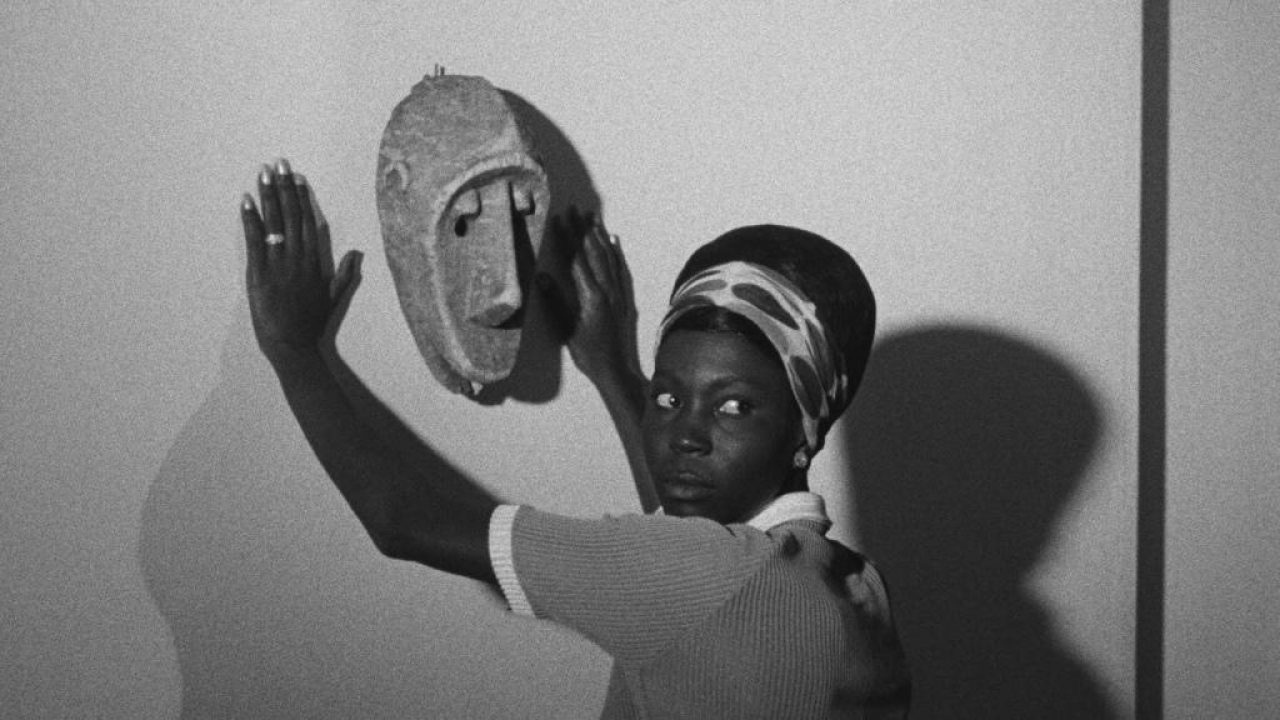
‘Black Girl’ by Ousmane Sembene was the first Sub-Saharan film made by an actual African. Director Sembene is sometimes known as the father of African cinema, and his first film is a powerful film. The country where part of the film takes places, Senegal, had gained independence less than a decade before Sembene directed his first feature.
Director Sembene was influenced for his film by the French New Wave, and it shows in the techniques he employs. His direction gives something of an impressionist vibe to ‘Black Girl’, making it experiential for the viewer. It is also quite a dramatic film, and especially the last scene is powerful with the image of Africa literally haunting the couple. Interesting chapter in African cinema that seems sadly less watched.
3. Songs from the Second Floor (2000, Roy Andersson)
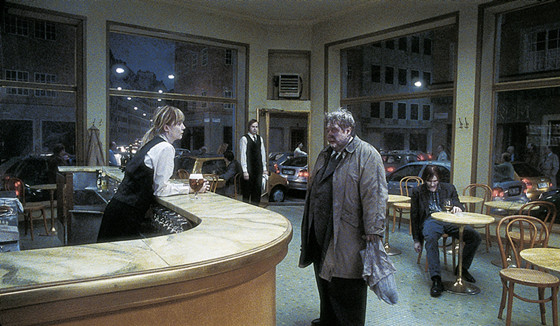
It is hard to describe ‘Songs from the Second Floor’ by director Roy Andersson, according to Andersson himself it is a ‘film poem’. What that means is not exactly clear, but it makes intuitive sense. ‘Songs from the Second Floor’ is a unique film, a farcical tragedy with a cynical view of (modern) life. It creates a world recognisable as a facsimile of our own world, using over-emphasis to contrast it with ours.
The film takes on such themes as love, family, religion, modernity and basically whatever you can think of. But it is never preachy, or really straight-forward for that matter. It works well as just a demented comedy, but one can never escape the sneaking depth of the themes it portrays.
‘Songs’ is a beautiful film, and it creates a profoundly sad image of life. What’s perhaps most striking is how different it is, and how unexpected. Next to moments of profound sadness there are scenes that can make you burst out laughing at how strange it all is. ‘Songs’ is not a film that makes sense in a traditional way, but you’ll understand if you let go and take it for what it is.
2. Before the Rain (1994, Milcho Manchevski)
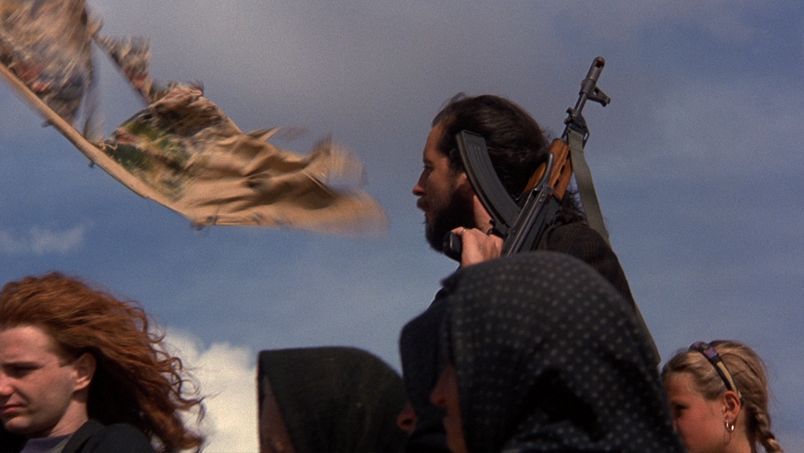
Debut of North-Macedonian director Milcho Manchevski. ‘Before the Rain’ is a film in three chapters, two of whom are set in Manchevski’s native North-Macedonia and one in London. While the former state of Yugoslavia has exploded in different factions and war, North-Macedonia has managed to stay outside of the chaos. But, as ‘Before the Rain’ shows, the seeds of conflict are present. The first chapter sees a young monk hiding an Albanian girl, the second chapter a British photographer trying to connect with her Macedonian husband (Rade Serbedzija) and the third chapter follows the husband back in his childhood village where ethnic divisions have sharpened.
‘Before the Rain’s’ chapters are structured in a non-linear way, but also seems to work as a circle. Its structure gives the feeling of something inevitable in the unfortunate events seen on screen, but there is a small sliver of hope: maybe the circle of violence can be broken.
A special mention should be made for Rade Serbedzija because his performance as the brooding, weary Aleksander is the heart of this film. And also for the beautiful shots of the North-Macedonian landscape and the unique architecture of the monastery (in actuality a composite of multiple monasteries) which root the film in a time and place; a seeming calm before the storm.
It is unfortunate but the film has proved prophetic: not even a decade after the release of ‘Before the Rain’ ethnic violence broke out in the country of North-Macedonia. Now there is again peace in the region, but the scars of the insurgency remain.
1. Damnation (1988, Béla Tarr)
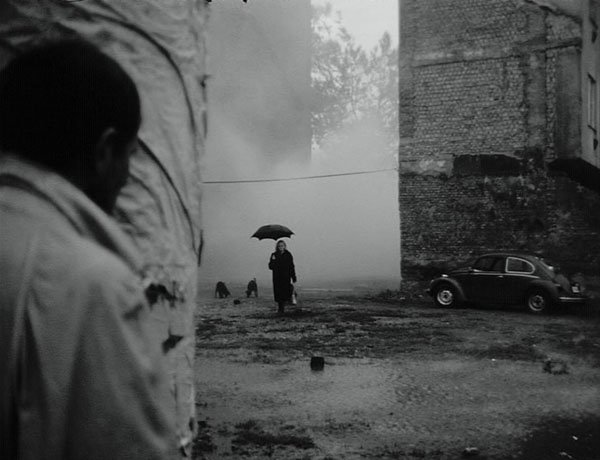
Director Béla Tarr is something of a modern legend in art-house circles. The filmmaker is well-known for his slow-moving films, filled with long takes and shot in gorgeous black and white like the epic 7 hour long ‘Satan’s Tango’, the beautiful ‘Werckmeister Harmonies’ and the nihilistic ‘The Turin Horse’. ‘Damnation’ is the first one of Tarr’s films that creates his modern trademark style. It follows a drunk in a hopeless, damned, world who falls in love with a married bar singer.
‘Damnation’ feels a bit more grounded than director Tarr’ss most well-known films, and it is perhaps more cynical, but it still remains a ethereal experience. Its narrative is dark and desolate, just as the world the characters inhibit. Tarr shots ‘Damnation’ in his trademark style, which gives the whole film a dreamlike feel and prevents it from becoming an empty nihilistic exercise, though the film is certainly not an breezy experience.
All in all ‘Damnation’ is an oft-overlooked masterpiece by a legendary director, showing the methods he would employ with such great success in his well-known films in this dark, but strangely profound movie. Just don’t expect a easy and happy film experience.